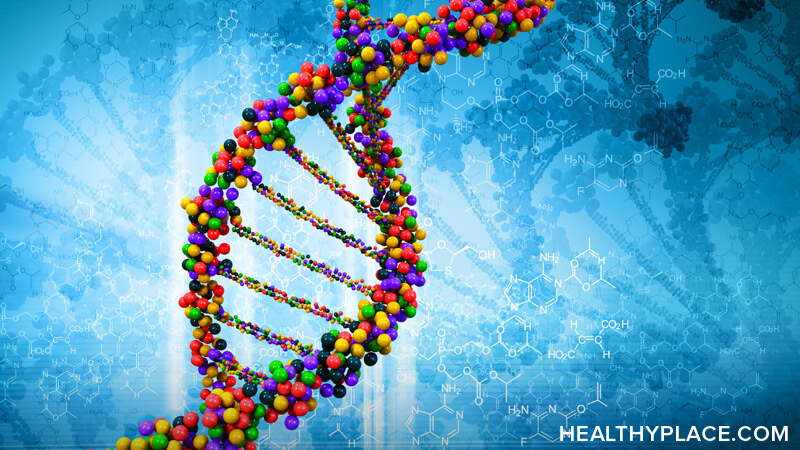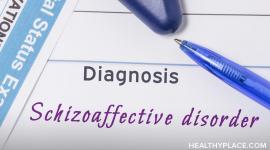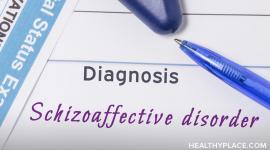What Causes Schizoaffective Disorder?

Part psychotic disorder, part mood disorder, schizoaffective disorder is baffling. What causes schizoaffective disorder? It’s a question that people living with this complex disorder and their loved ones commonly ask. Researchers and other mental health professionals ask it, too. So far, the answer remains elusive.
The causes of schizoaffective disorder are still largely unknown. This mental illness is unique. The combination of psychosis and mania and/or depression makes it difficult to fully comprehend. Researchers are seeking answers, including a definitive cause. While they can’t say with absolute certainty what causes this mental illness, they do have solid theories. Hopefully, one day, this will lead to better schizoaffective disorder treatments.
For now, based on what is known about related disorders, such as schizophrenia, bipolar disorder, and major depressive disorders, and on commonalities among people with schizoaffective disorder, researchers and neuroscientists are discovering possible causes. They’re also identifying likely risk factors and triggers.
Possible Causes of Schizoaffective Disorder
While it’s still unknown what causes schizoaffective disorder, these factors have been identified as potential origins of the disorder:
- Genetics: There is quite possibly a biological component to schizoaffective disorder, with certain genes coded for things like mental illness, including psychotic disorders.
- Brain: Differences in brain chemistry and brain structure have been found in people with schizoaffective disorder compared to non-affected people. Neuroimaging studies have shown brain malformations and/or smaller brain volume in people with this mental illness.
- Birth defect: Problems during birth that cause reduced oxygen to the baby can cause mental illnesses later in life, and it seems that may include schizoaffective disorder too.
- Exposure to toxins or viruses in the womb: Babies whose mothers smoked, drank alcohol, were exposed to other environmental toxins, or came in contact with certain viruses may be at increased risk in adolescence or adulthood for illnesses such as schizoaffective disorder.
- Substances: Certain drugs, psychoactive, mind-altering drugs like LSD, PCP, psychedelic mushrooms, and others, seem to have the potential to cause psychotic and other disorders.
Currently, no difference in cause has been found between the two types of schizoaffective disorder. One thing researchers are trying to discover is why one person with schizoaffective disorder will have bipolar type and another person has depressive type. While it’s possible that each type has a unique cause, current knowledge says that the causes are the same no matter the type.
Risk Factors and Triggers for Developing Schizoaffective Disorder
Risk factors and triggers have a role to play in the development of schizoaffective disorder (or anything else, for that matter). One or more of the elements that causes the disorder must be present, and risk factors and triggers can “activate” those causal factors to spur the development of the illness.
Risk factors are conditions that exist or actions someone is taking, while triggers are things in the environment that have a negative impact on someone. Risk factors and triggers that are at work in the development of schizoaffective disorder are such things as:
- Family history of mental illness, especially schizoaffective disorder, schizophrenia, and bipolar disorder
- Developmental delays in childhood linked to structural differences in the brain
- Extreme and/or chronic stress
- Substance use or abuse
- Having been a victim of abuse or neglect
- Trauma
Neuroscientists have made progress in understanding the cause of schizoaffective disorder. It’s important that research continues, for insight into cause can lead to significant prevention efforts.
APA Reference
Peterson, T.
(2021, December 29). What Causes Schizoaffective Disorder?, HealthyPlace. Retrieved
on 2026, January 9 from https://www.healthyplace.com/thought-disorders/schizoaffective-disorder-information/what-causes-schizoaffective-disorder



